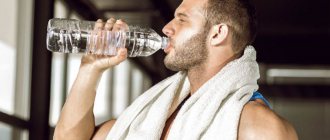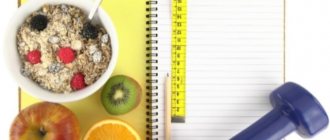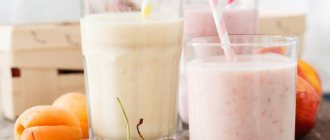People who are losing weight ask why they want to eat after training. Although, this is logical - we waste energy and must make up for the deficit, which the body clearly hints to us through the feeling of hunger. But not everyone is happy about this - some go straight to fast food, while others consume a triple portion of healthy and nutritious food. That’s why we don’t lose weight, as they say. In fact, an increase in appetite after a workout is normal, it is not normal if you cannot stick to your diet plan because of it. This means something is wrong with your recovery, nutrition, or the training itself.
Oh sport! You are an unbearable burden
A couple of years ago, a viral article circulated on the Internet in which yet another British scientist, based on statistics, proved that a card to a fitness club is more likely to promote weight gain than weight loss. The arguments were ironclad:
It is clear that such a set of diverse horror stories simply convinces us that training is the enemy of diet. And since restrictive nutrition is the main weapon of harmony and beauty, then we shouldn’t even try to go to some gym.
"Female version" of the previous horror story
And for girls who want to be fit, they specially invented dancing, light fitness such as Pilates, swimming and all sorts of aerobics. According to legend, they make you not want to eat. Of course, especially if you consider that everything listed above, just like the despicable “metal”, consumes “carbohydrate fuel”, that is, you don’t want to. Maybe chew some candy or a small cake. Considering that this is “light food” in the understanding of quite a lot of people, and the fact that a chocolate bar contains the same calories as a small portion of buckwheat with a steamed chicken cutlet does not bother anyone particularly.
So is it necessary to eat if you want to eat?
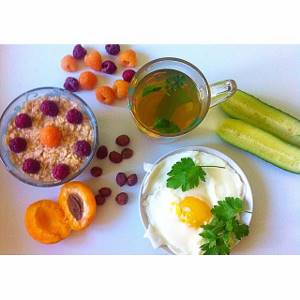
For girls, again, a myth has also been invented that everything that we eat after a workout, from protein products, will immediately be used for the needs of “muscle building.” Therefore, especially ardent fans of thinness do not eat these same protein foods for half a day. In fact, there are enough free amino acids circulating in the body to begin protein synthesis. But...you won't get big if you eat at a calorie deficit.
Therefore, two-hour breaks between the gym and eating “for weight loss” do not make sense. It is worth eating right away, and if you want to recover normally - proteins and carbohydrates without adding fat, and a little later - a large meal, which will also include fats.
You can also come across the opinion that carbohydrates have no place in the diet of someone losing weight when it comes to post-workout meals. In fact, no one forces you to load yourself with 120 g of carbohydrates at a time, but if you eat about 30 g there will be no problem. But protein synthesis in damaged muscles will be “more fun.” This means that we will end up burning more calories than if we simply abstained from eating after exercise.
How to eliminate hunger and not gain weight?
After cardio training, there is a high risk of gaining weight as a result of eating baked goods or various diet bars
, which they really are not. To prevent this from happening, you should take this point into account in advance and pack a container of food for training in the gym, or prepare breakfast or lunch and dinner on your table in advance.
Often, after a workout, the body is deceived by telling a person that he is hungry. What he really wants is water. It is necessary to drink a glass of warm still water 10 minutes before eating.
For a snack, it is best to use a salad filled with coarse fibers
, complex carbohydrates in the form of fruits or vegetables (you should remember that some fruits and vegetables are very high in calories, look at the calorie table).
You can replace salad and carbohydrates with nuts.
100 grams of nuts of different varieties will quickly satisfy your hunger. You can also try making a fruit or vegetable fresh cocktail using a blender, but, as a rule, not everyone can eliminate hunger with it. To be satiated, you need to chew everything thoroughly.
In general, cardio training involves all muscle groups and expends a large amount of energy.
. As a result, a person wants not only to drink, but also to eat. You can help your body without suffering from hunger by eating a light snack with complex carbohydrates, as well as drinking plenty of water.
People who are losing weight ask why they want to eat after training. Although, this is logical - we waste energy and must make up for the deficit, which the body clearly hints to us through the feeling of hunger. But not everyone is happy about this - some go straight to fast food, while others consume a triple portion of healthy and nutritious food. That’s why we don’t lose weight, as they say. In fact, an increase in appetite after a workout is normal, it is not normal if you cannot stick to your diet plan because of it. This means something is wrong with your recovery, nutrition, or the training itself.
Unbalanced diet
This happens to comrades who misunderstand calorie counting and nutritional supplements. Many people really only try to “get into calories”, completely ignoring the need to eat a certain amount of protein, carbohydrates and fats. It turns out that such people eat only the most delicious things for themselves - sweets, some fruits, cheese, nuts or pasta made from them, but not meat, fish, eggs and cereals. A diet of “sweets” is not filling, since such food can be absorbed quite quickly, especially if we are talking about sweets. Therefore, after each session of “wasting calories,” the body simply screams about the need to replenish them.
What to do: start eating fiber. Yes, it's quite simple - you can “slow down” the absorption of any simple carbohydrates if fiber is added to the dish. That’s why a homemade cake with whole grain flour is much better than a store-bought one. But this does not exempt you from counting the amount of macronutrients.
Too many simple carbohydrates
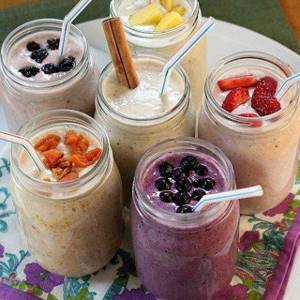
Theoretically, a healthy person cannot suffer if he gets most of his carbohydrates from “simple” sources. But in practice it turns out differently. Someone safely eats 100 g of honey a day and feels normal, but someone starts eating sweets with salty, sour, and “something else”, and then does not lose weight.
There are also real deviations in health, when after each serving a sweet person experiences a loss of strength and a desire to eat again. This is due to a violation of insulin metabolism, and should be a reason to consult a doctor.
In order to maintain normal metabolism on a diet, we are recommended to have no more than 10-20% sweet carbohydrates in the diet. That is, we can eat one serving of sweets, but “exchanging” all the buckwheat for sweets makes no sense.
6) Emotional attachment to food
In this case, we are not talking about real physical hunger, but about psychological appetite. On the day of a run, many people want to reward themselves with dessert, a fatty dish, or just an extra portion of their usual food. This tendency often leads to excess weight gain, since the calorie content of the delicacy eaten usually exceeds the amount of energy expended during training. Food rewards are certainly acceptable and can be a good motivator for some. However, in order to avoid the described imbalance, it is necessary to carefully monitor energy consumption and intake - as an option, you can use special sports gadgets that count calories burned, and also choose healthier foods.

On the eve of summer, many decide to take part in official city races - 5 kilometers, 10 kilometers and even half marathons. Mandatory training includes regular jogging, strength training, etc. Out of habit, such loads can provoke a childish appetite that will persist throughout the day. To avoid such discomfort and stay focused for other important things, use the simple tips from the list below.
Training plan and its nature
Let's just say that when losing weight, we can set different training goals:
Not all training goals map perfectly to a low-calorie diet. More precisely, only bodybuilding-style figure correction correlates with it - 8-12 repetitions, a lot of isolation exercises, low-intensity cardio at the end. But everything else requires average calories and a fairly high amount of carbohydrates. Yes, you may be hungry because you're doing "metabolic" style circuits with fairly heavy bases, running sprints, and trying to munch on 30g of oatmeal as your only source of carbohydrates.
So remember that the deficit should be small and the weight loss should be slow.

Sports supplements for burning fat
To burn fat, you need to increase the number of calories you burn and eat right. It would be a good idea to use sports supplements that promote effective weight loss. The following complexes have proven themselves well.
- Fat burner
(for example, Thermogenic) – suppresses appetite, increases training performance and accelerates the breakdown of fat tissue. - L-carnitine
– increases the rate of fat breakdown and improves the transport of their breakdown products. - BCAA
(for example, Intra Fuel from SAN) - suppresses appetite, protects muscles from stress during training and activates fat breakdown processes. - Liquid protein
(for example, Syntha-6 from BSN) is an indispensable complex during regular training, containing the necessary amount of carbohydrates and healthy fats. Fully satisfies the body's nutritional needs. - Special vitamin and mineral complexes
(for example, for men - Opti-men, and for girls - Opti-Women) - allow you to completely compensate for the deficiency of vital substances necessary for the body's metabolic reactions.
Sports supplements are complexes with proven effectiveness. Their recipe is scientifically proven, the formulas are patented. They cannot be suspiciously cheap and are purchased exclusively in specialized stores. Before using supplements, you must make sure that there are no contraindications - chronic diseases of the liver, kidneys, cardiovascular system, diabetes mellitus and other diseases.
Meal frequency
Many people, with a relatively optimal “matrix” of proteins, fats and carbohydrates, have a rather uneven distribution of food throughout their active day. Let's say a girl goes to the gym after work. She had lunch at one o'clock in the afternoon, and it was relatively full. Before training, she drinks a thin protein drink in water, or chews a bar “with fiber and protein.” It is not surprising that after training her feeling of hunger reaches cosmic proportions. Of course, the snacks and main meals theory is good if you don't have much physical activity, but not so much if your goal is to train effectively. Try to make the 4 meals after breakfast approximately equal in time intervals, calorie content, and macronutrient composition.
And yes, the worst decision to eat carbs in the evening can save, not “destroy” your waistline. Mixed foods, according to most sources, are the most optimal for anyone who strives for a longer feeling of fullness. Therefore, perhaps the “protein-complex carbohydrates-fats” scheme is more suitable for you, rather than the “protein-fiber” scheme for all meals.
Why does the workout end with a strong appetite?
Many who are just starting to hone their figure complain that before the workout is over, they already want something. At the same time, they try their best to endure it, because it seems that otherwise the efforts in the gym will be in vain.
One of the reasons is poor nutrition
. Deciding to lose weight at all costs, you buy a gym membership and begin to intensively perform all the exercises you can, don’t miss a single group class and literally crawl home. And I want to eat. This is the wrong scheme.
To avoid feeling very hungry after a workout, you need to eat 2 hours or an hour before it. Then hunger will arise forty or even ninety minutes later.


